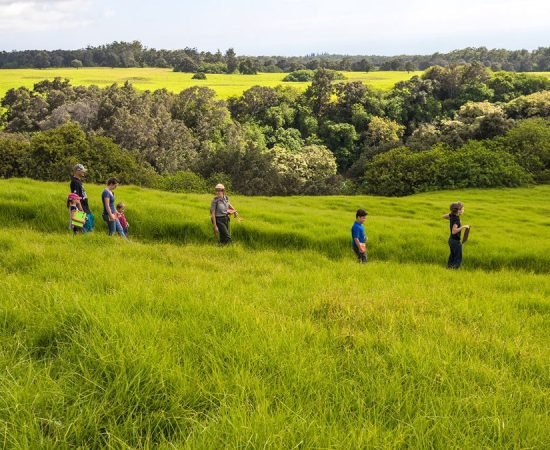According to research, our tension levels are influenced by our surroundings and can rise or fall. Your neural, hormonal, and immune systems’ functions are all changed at any given time by what you are seeing, hearing, and feeling.
You might experience anxiety, sadness, or helplessness as a result of the tension of an unpleasant surroundings. Your immune system is subsequently suppressed as a result, which also raises your blood pressure, pulse rate, and muscular tension. Positive surroundings change that.
And people find nature to be beautiful regardless of their generation or country. More than two-thirds of people choose a natural environment to escape to when overwhelmed, according to a survey mentioned in the book Healing Gardens. Regardless of age or location, people find wildlife to be beautiful. According to a study stated in the book Healing Gardens, more than two-thirds of people choose to retreat to a natural setting when feeling stressed.
Nature heals
Being in nature or even just watching natural scenery makes you feel better and less stressed, angry, or afraid. Not only does being in nature improve your mood, but it also benefits your bodily health by lowering your blood pressure, heart rate, muscular tension, and stress hormone generation. According to experts like the public health specialists Stamatakis and Mitchell, it might even lower mortality. Being outside not only makes you feel better, but it also has positive effects on your physical health by reducing stress hormone production, blood pressure, pulse rate, and muscle tightness. It might even reduce death, say experts like the public health gurus Stamatakis and Mitchell.
A basic plant in a room can significantly reduce tension and anxiety, according to research conducted in hospitals, workplaces, and schools. According to studies done in hospitals, workplaces, and classrooms, a simple plant in a room can considerably lower stress and worry.
Nature soothes
In addition, nature provides us with discomfort relief. We are drawn in by natural landscapes and distracted from our suffering and distress because we are genetically predisposed to find trees, vegetation, water, and other aspects of nature fascinating.
This is effectively illustrated in a now-classic study of gallbladder operation patients, of which half had a view of trees and the other half had a view of a wall. Robert Ulrich, the doctor who led the research, claimed that patients who could see trees were better able to tolerate pain, looked to be having fewer side effects, and spent less time in the hospital. Similar outcomes have been found in more recent research using natural scenery and vegetation in hospital rooms. Recent studies that used hospital rooms with outdoor landscapes and flora found similar results.
Nature restores
The effect of nature on overall wellbeing is one of the most fascinating topics of contemporary study. In one research published in Mind, 95% of those surveyed reported that their attitude changed from being depressed, worried, and anxious to being more peaceful and balanced after spending time outside. A good attitude, psychological wellbeing, meaningfulness, and vitality are all linked to spending time in nature or viewing nature-inspired images, according to additional research by Ulrich, Kim, and Cervinka. Also According to additional study by Ulrich, Kim, and Cervinka, being in nature or watching nature-inspired pictures is related to having a positive mindset, psychological wellbeing, meaningfulness, and vitality.
Additionally, spending time in nature or watching images of nature improves our capacity for concentration. Humans naturally find nature fascinating, so we can naturally concentrate on what we are witnessing outside in nature. This also gives our overactive brains a break, recharging us for new duties. We can easily focus on what we are seeing outside in nature because humans find nature to be intriguing. Additionally, it rests our overworked minds, refreshing us for new responsibilities. Additionally, it rests our overworked minds, refreshing us for new responsibilities. Nature is fascinating to people, so we can easily concentrate on what we are seeing outside. It also gives our tired thoughts a break, reviving us for our new duties.
Another intriguing finding from Andrea Taylor’s study on ADHD kids is that time spent outdoors later on lengthens the children’s attention span.
Nature connects
Time spent in nature strengthens our bonds with one another and the wider world, according to a set of field studies performed by Kuo and Coley at the Human-Environment Research Lab. Another study at the University of Illinois suggests that residents in Chicago public housing who had trees and green space around their building reported knowing more people, having stronger feelings of unity with neighbors, being more concerned with helping and supporting each other, and having stronger feelings of belonging than tenants in buildings without trees. In addition to having a stronger sense of community, they also had a lower risk of street crime, less domestic partner hostility, and better coping skills with life’s demands, particularly the pressures of living in poverty.
Studies that measured brain activity using fMRI may help to explain this feeling of connectedness. Participants’ sensitivity and love-related brain regions lit up when they watched images of nature, but their fear- and anxiety-related brain regions lit up when they watched scenes of cities. It seems that nature stimulates emotions that bind us to one another and our surroundings. When watching pictures of nature, participants’ sensitive and love-related brain regions lit up, whereas watching city landscapes lit up their fear- and anxiety-related brain regions. Nature, it seems, arouses the feelings that connect us to one another and our environment.
Too much time in front of screens is deadly
Unsurprisingly, melancholy has been linked to “nature deprivation,” or a lack of time in the natural world, which is primarily caused by hours in front of TV or computer displays. Studies by Weinstein and others that link screen time with diminished empathy and absence of charity are more surprising.
And the dangers go beyond solitude and melancholy. Independent of physical exercise, time spent in front of a screen was linked to a higher chance of death in a 2011 research released in the Journal of the American College of Cardiology!




